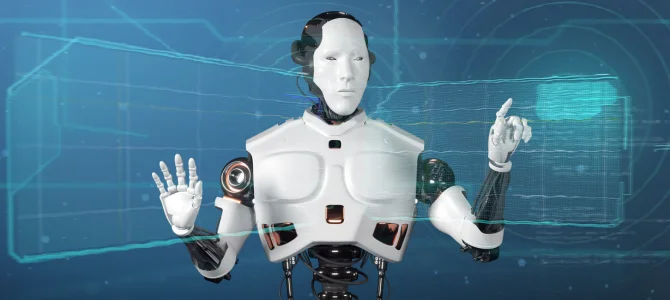The future of robotics in manufacturing holds immense promise, with the market for industrial robotics experiencing robust growth since 2012. South Korea stands out as one of the leading adopters, with a staggering 710 robots per 10,000 workers. This growth is fueled by continuous advancements in robotics technologies and the availability of skilled robotics engineers, driving innovation and efficiency in manufacturing processes.

Benefits of robotics in manufacturing
Further progress in robotics is expected through the integration of new technologies that unlock additional manufacturing value. Technologies such as the Industrial Internet of Things (IIoT), 5G connectivity, and virtual simulation are poised to revolutionize in robotics in manufacturing and industrial production:
- Industrial Internet of Things (IIoT): By connecting manufacturing equipment, devices, operations, and data to the internet, IIoT enables smarter decision-making through data-driven insights.
- 5G Connectivity: Offering real-time connectivity with low latency and high throughput, 5G facilitates seamless communication between robots and other smart factory components for efficient data analysis.
- Virtual Simulation: Robot behavior can be simulated and validated in a virtual environment, enabling precise testing and optimization of industrial processes and workflows.
New Opportunities for Growth
While robots are already widely used in component manufacturing, there are untapped opportunities for further deployment and growth in areas such as product assembly, mass customization, and Robotics as a Service (RaaS):
- Product Assembly: Advancements in robot technology, including multi-axis arm movement, enable robots to replicate human dexterity, making them suitable for product assembly tasks and enhancing efficiency.
- Mass Customization: Modular robots with interchangeable components are facilitating mass customization, allowing manufacturers to meet individualized customer demands efficiently and sustainably.
- Robotics as a Service (RaaS): The RaaS model offers a subscription-based service for leasing robots, providing manufacturers with flexibility and cost-effectiveness while avoiding ownership hassles.

Harnessing the Full Value of Robotics
To maximize the benefits of robotics in manufacturing, businesses need to optimize planning and implementation processes. Integrated platforms empower manufacturers to simulate and optimize production processes in a virtual environment, enabling them to design and deliver efficient robotics solutions tailored to their specific needs.
By leveraging integrated platforms, manufacturers can:
- Define robotic work cells
- Program and optimize robots
- Simulate entire manufacturing environments
- Validate production concepts
- Reduce cycle times
- Improve implementation and programming efficiency
The task at hand is to outline all the advantages & disadvantages of using industrial robots. Ultimately, by harnessing the full potential of robotics and automation, manufacturers can reduce operational costs, increase productivity, avoid costly mistakes, and transform their operations for the better







